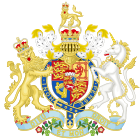House_of_Commons_(Removal_of_Clergy_Disqualification)_Act_2001
House of Commons (Removal of Clergy Disqualification) Act 2001
United Kingdom legislation
The House of Commons (Removal of Clergy Disqualification) Act 2001 (c. 13) is an Act of the Parliament of the United Kingdom. The purpose of the Act was to remove the disqualifications for clergy in standing for election as Members of Parliament and sitting in the House of Commons. The Act also allowed clergy to sit in other elected bodies including the European Parliament. The act does, however, expressly reaffirm the continuing disqualification of those bishops of the Church of England who sit in the House of Lords as Lords Spiritual, as no person may sit in both Houses of Parliament at the same time.
This article includes a list of references, related reading, or external links, but its sources remain unclear because it lacks inline citations. (September 2017) |
Previously clergy were disqualified to sit in the House of Commons due to the House of Commons (Clergy Disqualification) Act 1801 and section 10 of the House of Commons Disqualification Act 1975.
The Bill was a reaction to the selection of David Cairns, a laicised Catholic priest, as the Labour candidate for the safe seat of Greenock and Inverclyde. Member of Parliament Siobhain McDonagh had previously introduced similar legislation in 1999, but it had run out of parliamentary time.

